Erica Deuso on Becoming Pennsylvania’s First Transgender Mayor
Downingtown’s new mayor talks flooding, affordability, and why voters cared more about issues than her identity.

History was made in Pennsylvania several weeks ago, when Erica Deuso became not only her town’s first transgender elected official, but the first transgender mayor to be elected in Pennsylvania history.
Deuso’s identity — and the historic nature of her candidacy — were not the focus of her campaign for mayor of Downingtown, Pennsylvania. Instead, the 45-year-old focused on kitchen-table issues and the nuts and bolts of governing a small city in an exurban county outside Philadelphia.
“After I won my primary, The Philadelphia Inquirer did a story about it, noting, ‘This person could be the first trans mayor in Pennsylvania.’ But that’s not what I was running on,” says Deuso. “Everybody I met was really focused on what was in it for their families. What was I going to do about flooding? What am I going to do about public safety? And I kid you not, the first person who approached me, after I found out that I won, was talking to me about a speed bump in their neighborhood.”
A native of South Burlington, Vermont, Deuso came from humble beginnings. A child of the ’80s, her family struggled with housing and food insecurity after her father lost a good-paying job with union wages. But they leaned into their community ties to get by — experiences that not only shaped Deuso’s worldview, but led her to emphasize the importance of helping fellow community members and being a good neighbor in her campaign for mayor.
In 1992, Deuso’s family moved to Hanover, in central Pennsylvania, where she lived for six years before going to Drexel University for her undergraduate studies. She majored in biology and chemistry. After graduation, she got a job that sent her overseas to Denmark for four years before returning stateside. She ran a research facility at Drexel University before joining the pharmaceutical giant Johnson & Johnson, where she currently serves as a personnel and process quality manager.
Deuso settled in Chester County, enticed by the small-town environment and the friendly, welcoming residents of Downingtown. Initially, she thought she’d stay only a few years before moving elsewhere, but has made the town — where she lives with her husband of six years, a dog, and three cats — home for the past 18 years.
Deuso, who will be sworn into office on January 5, 2026, hopes to serve in the tradition of two of her predecessors, Mayors Phil Dague and Josh Maxwell, who earned reputations for getting things accomplished on behalf of the town of roughly 8,000 residents.
Deuso expects to spend much of her time as mayor working to mitigate flooding problems that have long plagued the town, which is bisected by the eastern branch of Brandywine Creek, a tributary of the Christina River. She is concerned about housing affordability, noting that many of the new apartment units being constructed are unaffordable for current residents, with rents starting at $2,200 for some properties.
She’s also working with a local organization to restore the downtown area’s tree canopy, which was all but wiped out by an infestation of the emerald ash borer beetle, an invasive bug from East Asia. And she’s particularly concerned about combating high rates of domestic violence in Downingtown, which experts have told her is the municipality with the third-highest volume of calls to the county’s domestic violence center hotline.
Asked whether she feels pressure due to her status as a transgender trailblazer, Deuso counters that she is focused on being a good mayor, noting that if she does a good job, it will also reflect well on the transgender community by convincing voters that a person’s identity doesn’t affect their job performance.
“Our job is to do the job well, and if we do the job well, then it reflects well on everybody in the community,” she says.

METRO WEEKLY: At what age did you realize your gender identity?
ERICA DEUSO: Really early, at about four years old. I knew something was different. In 1984, you didn’t have a word for transgender. If it did, it didn’t exist in any books that I was reading at the time. All I knew is I felt different. I felt like I was very much the same as my best friend at the time, a little girl who lived next door to me. I really felt like she and I were sisters, not a little boy and a little girl.
Knowing what I know now, my parents would’ve been super supportive, but I knew it wasn’t “normal” at that time, so I tried to repress it as much as I could. I tried [to come out] when I was 19, but ended up meeting my future wife at the time, pretty much on my way to my first therapy appointment. So back in the closet I went, and it wasn’t until I was almost 29 that I finally just said, ‘It’s this or the alternative, and let’s just see what’s going on here.’ So I started therapy when I was 29 years old.
Back then, you either came out super early or you came out in your forties. So I was sort of in the middle there. I really didn’t have too many peers who were coming out about the same time as me, and that made things a little bit more difficult.
MW: Who was the first person you came out to?
DEUSO: I went to a bar — it was a night that was set up for trans people. And at that point, I thought I was just exploring how I expressed myself, and not really trans. But I met another trans woman there. She said, “Tell me about what you’re feeling. Tell me about what you’re doing.” And I told her about the different feelings that I had and she’s like, “Oh yeah, bad news for you. It doesn’t sound like this is just a gender expression thing. This sounds like it’s going to be your life. And unfortunately that means the road’s going to be really hard and you may lose everything. You may lose your house, you may lose your relationships, your family, your friends.” It was really terrifying hearing that from somebody.
The first person [I came out to] after coming to that realization was my wife at the time. We tried to make it work for over a year, and then just determined that it wasn’t going to work between us. So we split amicably. They’re remarried. They have a new husband and they have a child now, so they’re happy. I’m remarried, so I’m happy. But that was the first person that I came out to.
Subsequently, everybody else, friends, family, neighbors here in town, were very accepting, very understanding. I don’t think I’ve lost a single friend because of this. I definitely haven’t lost a single family member because of this. I didn’t lose my job, I didn’t lose my house, I didn’t lose anything. So kind of a different situation than what many people faced 15 and 16 years ago.
MW: How long did your first marriage last?
DEUSO: About seven years, from 2006 to when the divorce went final in about 2013.
MW: When LGBTQ people come out, there’s sometimes a reticence to be publicly out in their professional life. Did you ever fear being fired or being denied promotions or opportunities to advance?
DEUSO: One of the greatest things that happened to me after I came out at work was I met a mentor of mine — she was a senior director and a part of the employee resource group for LGBTQ community at my company. And she was just a great ally. She has a gay son who just recently married a trans man. So very cool, very accepting. And she started mentoring me.
At one point, somebody came to her and said that they were worried because they didn’t know how they would get comfortable with somebody like me being in the bathroom with them. And she said, “Well, the way I see it, you have three options. You can find another bathroom to use, you can get used to it, or you can find another job.” And that was her support. It was just like, we are supporting Erica no matter what, so everybody better get on board here.
My company also let me create our own transition guidelines for the workplace as well as create our own health care plan. So they came to me and said, “We don’t know how to support you. What kind of services do you need to better support you?” So I created my company’s health care plan. I got promoted twice, and then I ended up getting laid off once, and then they decided they made a mistake or something, so they brought me back with a huge raise and another promotion. I’ve been promoted three times since coming out, so that never was really a worry for me, because I knew how inclusive my company was.
MW: I’d almost be remiss if I didn’t ask this. But because of the Trump administration’s directives, are you noticing pressure on your company to get rid of these employee resource groups or DEI initiatives?
DEUSO: Absolutely not. We have actually expanded our employee resource groups. We have groups that cater to all different groups of people, whether it’s veterans, the LGBTQ+ community, people who are from South America or [the] Asia-Pacific [region], disabled employees. We have all those different resource groups, and we’ve actually expanded some of them in the past year. We value DEI, we value diversity in what we do, because we believe it brings more ideas to the table, perspectives that we may not have had before. So we’re going to keep those.
MW: You’ve been elected as a Democrat. What do you make of the sort of self-flagellation among Democrats that’s gone on since Kamala Harris’ loss last year? What do you make of what feels like a constant barrage of “advice” telling Democrats that they need to change their beliefs or distance themselves from diversity efforts or the transgender community?
DEUSO: So this isn’t the first time we’ve dealt with this, especially the trans community. We’ve been thrown under the bus so many times, whether it’s by politicians or organizations. I remember when the Employment Non-Discrimination Act was going through Congress, the trans community got thrown under the bus because Democratic leadership said, “Well, we have a better chance of getting this through the House and the Senate if it’s just LGB.” And of course it failed, but we remember that.
But the way I’ve seen it in my town, people just don’t care [about me being trans]. It’s nothing to them. “Hey, can you do the job? Are you qualified? Are you going to be here when I need a neighbor at two in the morning? Are you going to be here when the Brandywine Creek floods? Or are you going to be here when my house catches on fire? What’s the town going to do for me?” That’s what people care about — that they have a neighbor.
And I think if we all just came back to the drawing board and said, “Look, let’s get back to what people really want,” we’d be better off. People care about kitchen-table issues. They want a good economy. They want housing that’s affordable. They want groceries that aren’t going to break the bank and stop worrying about the things that are made to make us fear. Let’s run more on the things that show love than on fear, because love is always going to be stronger than fear. And if we can keep pushing that with people, then I think we’re going to be a lot happier. We’re going to get a lot more done.
To those politicians who say we have to move more to the middle, I can tell you this: I brought my Republican opponent to the middle. My Republican opponent was a strong Trump supporter, anti-LGBTQ, all these things that we found out about them using social media. And as soon as we found them, it was a dive to the center. It was, “Let’s focus on the issues. Let’s focus on flooding and let’s focus on public safety, and let’s talk about how we’re going to make things more affordable for you. And bringing business back.” The campaign was never about my identity from my opponent. Now, there are people outside this town who decided to try to make this election about my gender identity. And obviously, since I won by almost 30 points, they failed miserably.
MW: What were some of those attacks launched against you?
DEUSO: So there were a couple of people who started our local countywide Turning Point USA chapter. They decided that it was going to be their mission to make this entire campaign about gender ideology and claim that I want to get substitute teachers in our middle school to push gender ideology on kids, or that I want to post rainbow flags all over town, or that I want to have drag queens parading through town for Pride. And I was like, “I have no clue where you’re coming up with these things.” But they sounded good to a fearful right wing, and that’s where it came from.
I had other people, some people from local businesses who we know were outwardly hateful, deadnaming me, misgendering me, and talking about misconceptions about surgery and mental illness and things like that. But I’ve been dealing with that for 16 years now. It doesn’t bother me, but what it does is it makes me worry about trans kids who have to see these things online.
It makes me worry about other trans people or people who have still yet to come out who are seeing those attacks, which maybe make them go back into the closet and rethink being their authentic selves. And when I saw some of those attacks, I felt like I had to push back against them, because I don’t want to be somebody who’s known as someone who kept their mouth shut. I’m going to be the person who pushes back, who stands up for the little guy, because I know what it’s like to be the little guy.
MW: What form did those attacks take?
DEUSO: So there was a Facebook page created that was called “Downingtown Community Uncensored,” and it was styled against another one called “Uncancelled.” They say the page was just to maintain free speech. But it was almost daily that they were posting something negative about me and about people who supported me. It was some of the worst, most disgusting stuff you can imagine.
And when I tried to post something on there about my campaign, it was either denied or it was held onto for days before they would approve it. But the worst stuff just came up seemingly every day. And towards the end of the campaign, they were bringing in the Turning Point USA Kids to go deliver flyers door-to-door, talking about how dangerous it would be if I was elected, and what it would turn our town into, and why my policies are terrible — always with this bent towards the fear that they work in.
MW: What reaction were those attacks getting from people in town? Because you won.
DEUSO: Well, I will tell you, when the flyers went around to people’s doors and everything, I didn’t even know about it. I was out campaigning, and my husband texted me and said, “I just got a flyer that’s really terrible talking about you.” And I’m like, “Oh, that’s weird. I don’t know where that came from.” I went on to Facebook, and the first thing I saw was that somebody in town had taken a picture of the flyer, posted it online and said, “Get the F– out of here with this.” My town rallied around me.
I’ll tell you this: when I was knocking on doors, I got more questions about our “Good Neighbor Christmas Parade” than I did about my gender identity. Nobody cared. And I’ve heard people say, “I’ve had conversations with Erica, and I never knew that she was trans. I just knew I loved her ideas for the town.” So my identity never came up at doors, and never came up at events — unless somebody else brought it up, or when it was mentioned in the media.
MW: I know the LGBTQ Victory Fund endorsed you during the campaign. Did you get any advice from or speak to any other trans elected officials about their experiences running for office?
DEUSO: I did, I did. I spoke quite a lot with Danica Roem down in Virginia. She’s also the executive director of Emerge Virginia. I’m on the board of directors of Emerge Pennsylvania, and so I’ve had conversations with her. Brianna Titone out in Colorado, I’ve had some conversations with her. Josie Caballero, the political director for Advocates for Trans Equality, came down during the primary, and was with me at the polls, helping me out there. Sean Meloy, who was with Victory Fund, now with the DNC, he helped me out a lot.
MW: What was the advice they gave you?
DEUSO: Focus on the issues. We all remember when Danica was first running — it was the infrastructure, the roads around Manassas that she was worried about, and that’s what got her into office. Here in Downingtown, it’s flooding. We had Hurricane Ida come through here in 2021. It cost us about $50 million worth of damage and destroyed houses. Our river went from three-and-a-half feet to 19-and-a-half feet deep. The flooding destroyed cars and businesses, and some never recovered. So people are worried about “What are you going to do about flooding mitigation?”
So I spent a lot of my time talking about flooding, going to the places that were most impacted by flooding, and talking to the people there about what needs to be done, and the needs and issues they’re facing. And then doing the actual research and science. I’m a scientist, so I’m going to look into the actual data and work with the groups that did flood studies to determine where the biggest bang for our buck is going to be here in town.
MW: Obviously, the big news politically was that Democrats did well from coast to coast. Did you get a sense early on that the wind was at your back, or did it always feel like it was a 50/50 race?
DEUSO: At the very beginning, in the primary, I was running against another Democrat who had been here for years — an older gentleman, who was very focused on flooding. So I had to become an expert on flooding really quickly. And there was some trepidation there, there was some worry. But my campaign manager was amazing. She was the campaign manager for Chrissy Houlahan, the U.S. representative for our county. So she came on and helped me. She was just amazing at everything she did and got us to a point where we ended up winning our primary by 24 points.
We knocked on 1,400 doors in three months, which is a lot when you have a full-time job and you’re just doing this on the weekends. But we had a lot of help knocking doors, getting the word out. We also had record turnout for the primary, and the Republicans just weren’t getting people out in town. So we had a 30% turnout in the Democratic primary. Republicans had a 12.8% turnout in their primary. We were feeling good from that. But then, you never know. You don’t know what’s going to happen.
Voter registration was on our side. We felt like we had momentum because we were, again, knocking on doors, we were sending out mail, we were talking to people at different events. My opponent never had an event. I think they sent out one piece of mail that we never saw. We didn’t know that they sent it out to anybody and we were told that they didn’t knock on any doors. So we thought that we had a really good chance to eke out maybe a 10-point win, maybe a 12-point win if we were lucky. We were not expecting a 30-point win.
When we were campaigning, we didn’t knock on doors just because somebody was a Democrat. We didn’t knock on doors just because you were an independent. We definitely didn’t avoid knocking on a door because somebody was a [registered] Republican. We wanted to make sure that when we went to a door, we found out what was important to people, and we would ask them, “What’s on the top of your mind for Downingtown? What’s important to you?”
I think that really resonated with people because it wasn’t trying to force my own beliefs on somebody. It was about trying to understand what people cared about and then being able to actually create policy around those concerns. And I think that really helped us.
I think more politicians need to be willing to do that. I don’t care if you’re running for president or senator or U.S. representative — go knock some doors and talk to people. You’re not going to learn that much by polling, but you’ll learn a lot just sitting on a porch drinking iced tea with somebody who’s lived in the town for 25 years.

MW: Did you ever have a moment during the election when you thought, “Oh, this might be bigger than we think,” or did you not know until election night?
DEUSO: Well, we saw people just lining up to vote, and that doesn’t happen in municipal elections here, but let’s go back about a week and a half before the election. We started seeing a pattern, where people were being more active on social media, telling us, “You’ve got our votes. Where do we vote? What do we need to do?” or “How do we check our voter registration?”
I met one person whose door I knocked on who said, “My daughter’s not going to be here for the election.” I said, “Well, today is the 27th. You can still get your mail-in ballot if you register by the 28th.” And she said, “Oh, my God, really?” And I kid you not, while we’re standing on her porch, she calls her daughter at the University of Pittsburgh, tells her to go online, and walks her through getting her mail-in ballot. And she told her daughter, “I want you home next weekend so you can drop off your ballot.” So her daughter came home the next weekend, dropped off her ballot, and the mother sent me a picture of her and her daughter dropping off their ballots together.
I think we had an inkling there was something going on a little bit early, but people here tend to hide their motives pretty well. But there were a lot of people leaving the polls after voting, looking at us, giving thumbs up, or leaning over and saying, “Good luck. We voted for you. We want you to be the next mayor.”
I had a woman bring her daughter over to me and said, “This is going to be our future mayor if everybody votes right.” And this little girl, maybe four years old, looked up at me, and I leaned down and said, “Nice to meet you.” And she reaches her hand out like she wants to shake my hand. I shake her hand and then I give her a little pink bracelet that says, “Elect Erica Deuso” on it. And I put it on her and I said, “I want you to hold onto this for me because in four years I’m going to be right back here and I want you to bring this back to me.” And she was all smiles and everything, and she skipped away with her mom looking at her new bracelet. It’s fun little things like that that give you hope, that bring you joy because you see the people just happy to get out and vote.
MW: When you’re looking at your political evolution over time, how do you classify yourself politically, and how have you changed?
DEUSO: Way back in high school, I tried to run for student council, and it just turned into a popularity contest. I just thought, “You know what? I’m going to take a step back.” Then I decided in college to run for our undergraduate student government association, and I really loved it. I ended up getting up to the level of vice president for institutional advancement. So I was working with our alumni association a lot and trying to figure out how to get money for the university and get new graduates to donate. But after that, I just went quiet.
I moved to Denmark. I learned a lot about Democratic socialism over there. I ended up getting hit by a car while I was over there. Funny story, almost no one drives over there. Everybody rides a bike or rides public transportation. So I’m riding my bike and I get hit by a car. It turns out the car was driven by a couple of Americans.
So I went to the hospital, got fixed up, they gave me some medication, and my bill was $44 total — 165 krone. That’s it. For an emergency room visit, for getting bandaged up and painkillers, $44.
Compare that to what we pay here nowadays. I just went to my checkup with my doctor, and that’s going to probably run me $300, even with insurance. So it means a lot to me. They have a great social safety net over there and the world’s happiest people, and it really taught me that by taking care of the people that you’re governing, it really makes people happy.
Being from Vermont, Bernie Sanders was my former mayor, my former U.S. representative. So when he decided to run for president in 2015, I was right there with him and worked on his campaign as a volunteer, and then again in 2020. And then I decided, “Hey, I’ve been doing all this work for Democratic candidates. Let’s go be a part of the Democratic Party.” So I got elected as a committee person for our county Democratic Party here, and now I’m the mayor-elect. I think a lot of those things — growing up in Vermont, Bernie Sanders, Denmark, a lot of my experiences have made me the progressive person I am right now. And then obviously being part of the LGBTQ community doesn’t hurt.
MW: Did you find that people were trying to tie you to progressivism during the campaign, and was that a negative or a positive?
DEUSO: I think everybody saw it as a positive, because I didn’t want to sit with the status quo. I thought there are better things we can do here. I think the mayor of this town can expand what the mayor actually does here. I went and talked about housing affordability, talked about our parks, talked about our good neighbor traditions, and talked about business revitalization. Even though those aren’t part of the mayor’s duties, I still feel like the mayor should have a responsibility to be looking out for all facets of the town. And I don’t want to be sitting back and saying, “Oh, my job’s done,” and have something else be wrong. I want to be able to get out there and do something about it.
MW: What grounds you, or keeps you steady in your personal life, whether it’s a person or a thing or some activity that you do?
DEUSO: My husband. We like to say that I’m the one with my head in the clouds, always trying to float off and trying to rise up. And my husband’s the anchor that holds me back down on the ground. I hope I never get too high that he can’t pull me back down. And I hope that he never feels so low that I can’t pull him back up.
We have this nice thing that we keep each other in the middle, and that’s where I think we need to stay. We just complement each other so well. He’s my rock. He’s the one that I count on. We spend every night before we fall asleep, just talking about the things that happened that day or things that are coming up in the rest of the week.
At the end of the day, we’re still just normal people living a normal life here in the suburbs. And yeah, maybe I’m the mayor-elect, but I’m still a daughter, I’m still his wife. I’m still my pet’s mom. That’s what keeps me grounded.
Erica Deuso is the mayor-elect of Downingtown, Pennsylvania. For more information about her and her political platform, visit ericadeuso.com.
Follow her on X at @EricaDeuso, on Bluesky at @ericadeuso.bsky.social, and on Instagram at @erica_deuso.
Support Metro Weekly’s Journalism
These are challenging times for news organizations. And yet it’s crucial we stay active and provide vital resources and information to both our local readers and the world. So won’t you please take a moment and consider supporting Metro Weekly with a membership? For as little as $5 a month, you can help ensure Metro Weekly magazine and MetroWeekly.com remain free, viable resources as we provide the best, most diverse, culturally-resonant LGBTQ coverage in both the D.C. region and around the world. Memberships come with exclusive perks and discounts, your own personal digital delivery of each week’s magazine (and an archive), access to our Member's Lounge when it launches this fall, and exclusive members-only items like Metro Weekly Membership Mugs and Tote Bags! Check out all our membership levels here and please join us today!









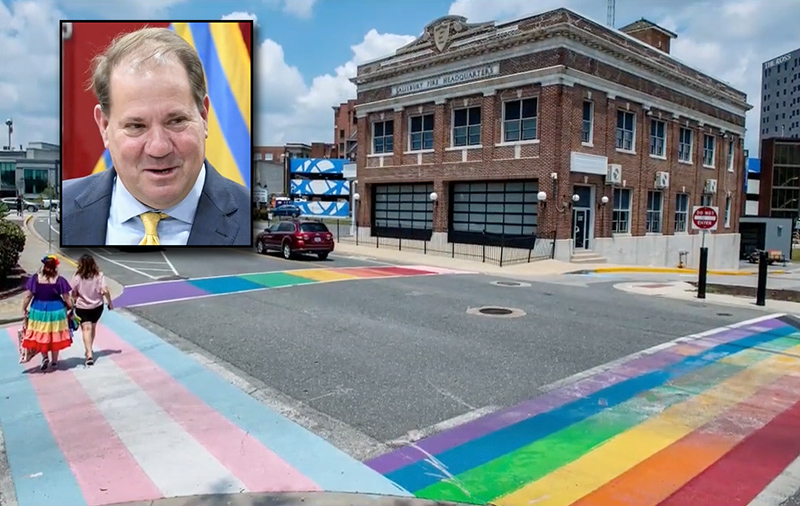
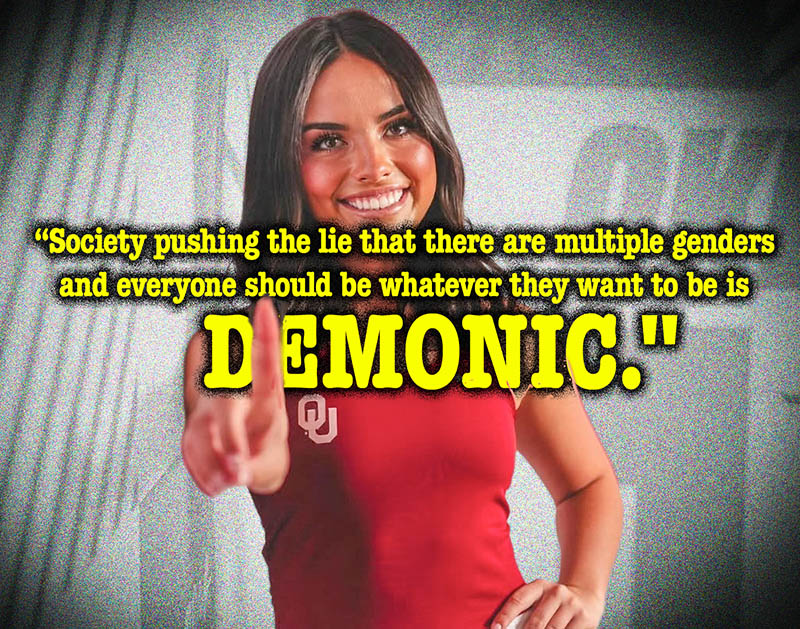
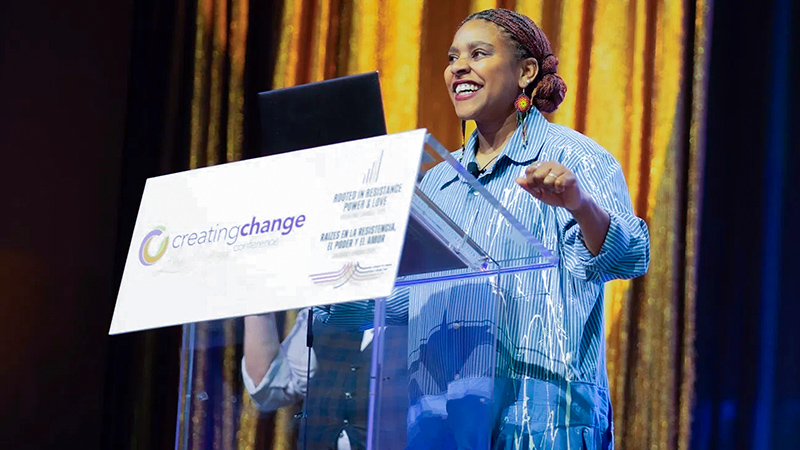














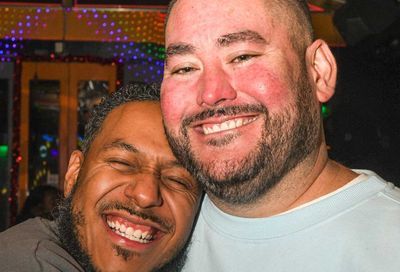
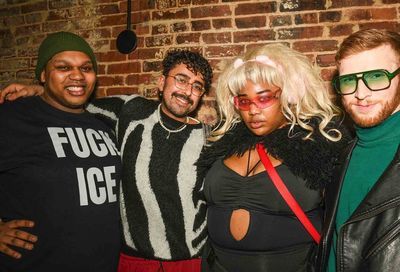

You must be logged in to post a comment.